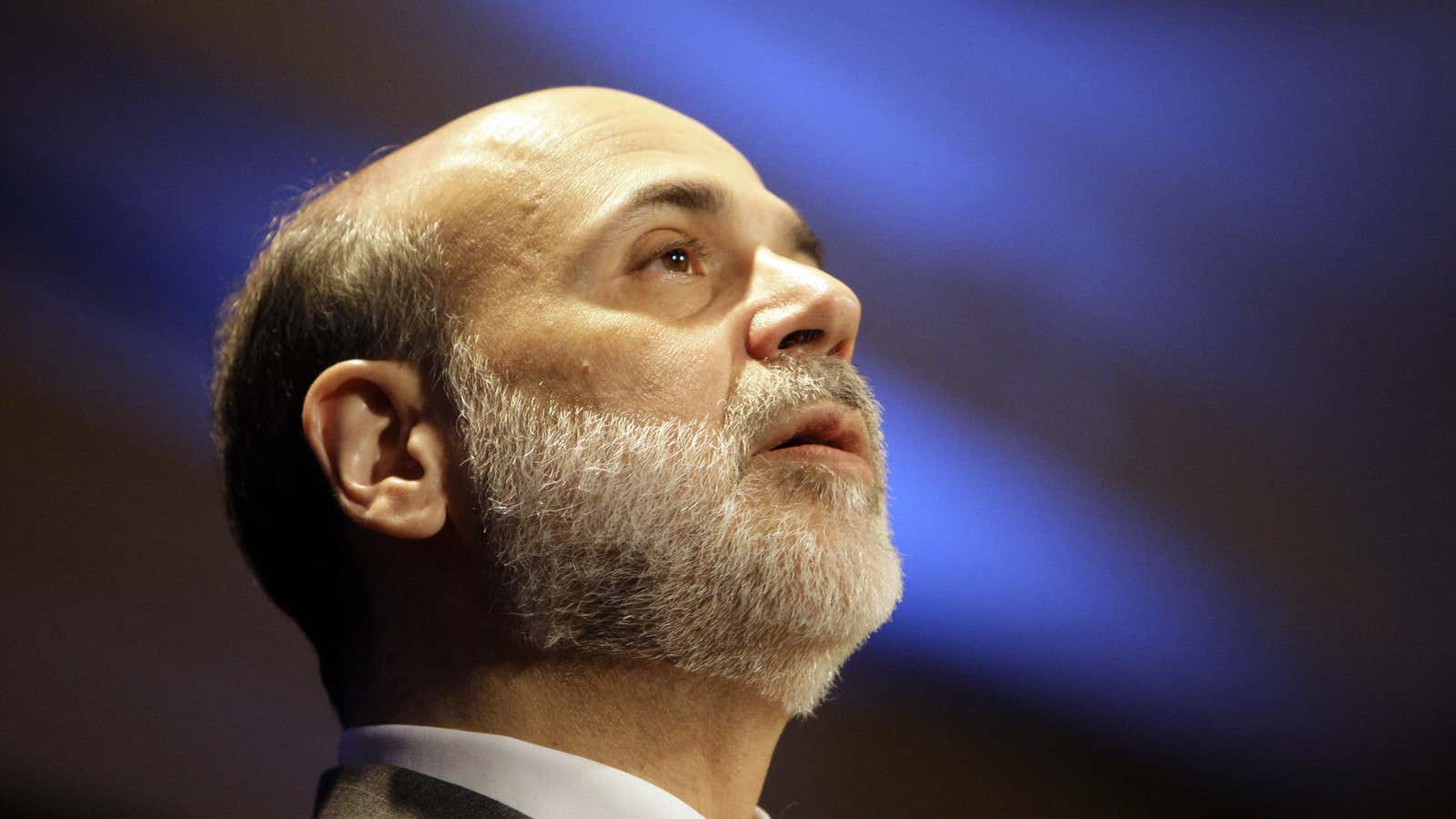Today, the US Federal Reserve approved a final rule instituting the Basel III financial accords, a global agreement meant to make sure banks are better prepared to weather financial shocks. The rules, drawn up in 2010 and modified since, are supposed to be the strictest global financial rules anyone’s put in place yet. But critics are still concerned that they won’t be enough to contain a global meltdown, and many contend that they go about fixing the financial system in the wrong way.
The Fed approved standards that would force banks to hold a higher level of capital relative to their risk-weighted assets. This capital—in the form of shareholder equity and high-quality assets like highly rated government bonds—will theoretically enable a bank to withstand greater losses. And if a bank should default, the capital would—regulators hope—make it easier to liquidate its operations without destabilizing the financial system and without tapping government funds.
The final rule US regulators approved eases the Basel III requirements just a little for the smallest US banks. Adhering strictly to Basel III would have imposed disproportionately high costs on small banks compared to big ones, in particular for legal fees.
It will be a while before anyone knows whether the plan works. The US and UK are far ahead of regulators elsewhere in actually implementing these agreements, but the full package of banking reforms isn’t supposed to go into effect until 2019. And in any case, markets aren’t likely to believe a big bank can fail without serious repercussions until they actually see it. For that we’ll have to wait for the next big crisis.
